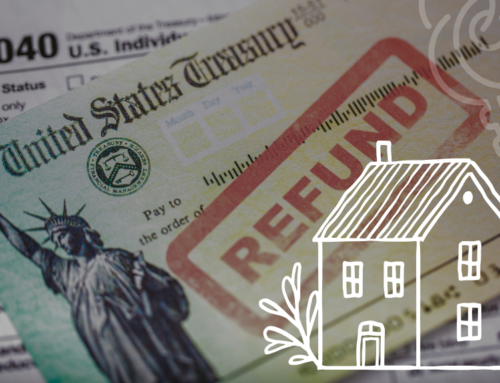If you’re a new homeowner, or are planning to buy, you know that homeownership comes with its fair share of perks—especially when it’s time to file taxes. The IRS actually offers quite a few tax deductions that homeowners can take advantage of in order to save some of their hard earned money when April comes around.

1. Interest on Home Equity Loans
First up, borrowing against the equity of your home is one way to acquire needed funds, and the interest on this kind of loan is, in many cases, deductible. This applies specifically to home equity loans and lines of credit utilized for making home improvements—whether that be a for-fun bathroom renovation or a necessary new roof. That being said, it is important to note that there was a change of rules in 2017, which limited the deductibility of interest to loans used specifically for home improvement expenses.
2. Deducting Mortgage Interest
Homeowners who are paying off their home mortgage have the opportunity to reduce their taxable income by deducting the interest that they’ve paid on their loan. This provision allows for the deduction of interest on up to $750,000 of mortgage debt for couples filing together or single filers, a reduction from the previous $1 million cap. For married individuals filing separately, the deduction is capped at $375,000 each.
3. Deducting Necessary Home Improvements
While not all home improvements are going to be deductible, those made for medical reasons are an example of what would fall under the “necessary” category. Modifications like installing ramps or widening doorways to accommodate medical needs are likely to be considered necessary and therefore deductible. Speaking to a CPA will allow you to get a clear answer, depending on the situation specifics.
4. Purchasing Discount Points
Homebuyers have the option to buy discount points, effectively prepaying interest to secure a lower rate on their mortgage. Each point costs 1% of the total mortgage amount and can be deducted, provided they are used to decrease the loan’s interest rate. Points paid for loan origination, however, do not qualify for a tax deduction as they are considered fees for services rather than prepaid interest.
5. Mortgage Insurance Premiums
Private mortgage insurance (also referred to as PMI) is typically a requirement for homeowners who made a down payment less than 20%. The premiums paid for PMI are deductible, which will help lower the overall tax burden for those who are still paying their mortgage insurance.
6. Property Tax Deductions
Property taxes paid to local and state governments are also able to be deducted—up to $10,000 for those married and filing jointly, and $5,000 for single filers or married couples filing separately. This deduction can make a big impact, especially in areas with higher property taxes.
7. Home Office Deduction
For homeowners who use part of their residence for business purposes, a portion of home-related expenses might be deductible. This includes a prorated share of utilities, mortgage interest, and property taxes based on the size of the home office area. However, the IRS stipulates that this space must be used regularly and exclusively for business to qualify. Basically, you can’t use the space on occasion and expect it to count when tax time rolls around.
About Michigan Mortgage Lender, Julie Krumholz from Superior National Bank
For over 35 years, Julie Krumholz has helped homebuyers with different financial backgrounds to make the dream of homeownership a reality. Julie has worked in processing, closing and loan origination, underwriting, QC auditing and has even co-owned a mortgage brokerage firm. Her passion for helping homebuyers has made her a trusted resource for those navigating the homebuying process and beyond.





